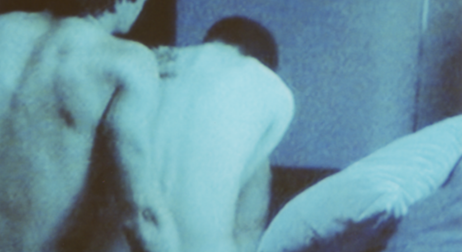Exploring my performance of the Madonna-Whore Complex
What happens when the curtain comes down?
Sigmund Freud to some is a prophet, to others is a neurotic with logic tainted by powdered toxins. Love him or loathe him, there’s no denying his theories are deeply ingrained in our lexicon.
Repressed desires breaking free in dreams. Defence mechanisms. Phallic symbolism. Liberal college graduates announcing your ‘Freudian slip’. That’s Freudianism.
His theories on the unconscious mind are widely accepted. To assert their truthfulness, however, can be controversial. There’s one Freudian theory, in particular, that isn’t so palatable for our present-day: the Madonna-Whore Complex.
It was Freud who introduced the provocative and gendered ideology that there are good girls and there are bad girls. Modern-day translation: you’re either a saint or a sinner, the wife or the mistress, the one they wed, or the one they bed. A woman can dip in and out of both discreetly, but under the compartmentalised male psyche, can rarely entertain both characters simultaneously.
Freud introduced the provocative and gendered ideology that there are good girls and there are bad girls… you’re either a saint or a sinner, the wife or the mistress, the one they wed, or the one they bed.
It can be argued there’s still a cultural and subconscious assumption of the Madonna-Whore Complex. When we instruct our friends not to ‘give in’, lie about our body count or succumb to Madonna aka ‘wifey material’ behaviour, the complex is set in motion.
This, I am guilty of.
Call me a bad feminist, but I’m a perpetrator of the Madonna-Whore Complex. If Freud was assessing the relevancy of his theory on modern culture, I’d be his primary case study.
I flit between the opposing characters based on a romantic agenda. A casual dalliance will have me enacting the traits of the latter: Shamelessly sharing stories of naughty escapades. Confident, assertive.
But as soon as I recognise future ‘potential’, I take on a new role as a prudent understudy. The stage lights switch on, the bedroom lights off, and I repress all indications of desire. If I believe in the Madonna-Whore Complex, it would explain such tendency to act like a wife disinterested in sex; at a time where desire should be at an all-time high.
Initially, I set out to track the experiences which had led to my internalisation of the Madonna-Whore Complex. But apart from the odd cheap insult or off-handed commentary about my Berlin-esque dress sense, I couldn’t legitimately reason why I titillated between being the ‘Madonna’ or the ‘Whore’. If anything, when I played the ‘Madonna’ role, my sexual aversion and timidness worked against me. I don’t particularly have any desire to be considered ‘wifey material’ but at the same time, I resonate more with demisexuality than not.
I’ve never felt my sexuality ‘weaponised’ against me. So why do I weaponise it against myself?
I play either the ‘Madonna’ or the ‘Whore’ because of a person vs. self conflict. Such performance operates in a similar vein to how I disclose my paradoxical persona. I’m either in or out of my party girl phase. And then, I’m either in or out of my highly strung, workaholic chapter. I’m either passive and impressionable or not afraid to completely rock the boat. And, like many people – as assured by Marina Abramovic in an interview with Debbie Millman – I’m terrified of exposing these contradictions. Understandable, perhaps, if we look at how cherished the modern sense of ‘identity’ is.
We’re in a personal branding revolution. We brand ourselves and we brand one another; neatly packaged with a ‘describe yourself in three words’ soundbite.
This ‘brand’ is a publicised extension of our identity. And like it or not, this identity is a social category just as much as it’s a tool to understand and anchor ourselves. It’s forever up for negotiation. Deviate too far from your ‘identity’ and you’re fake. Two-faced. A walking paradox. Borderline Machiavellian.
We all want to get a tight grip on our identity. We pay therapists who rely on the ‘inner child’ to explain subpersonalities. Guided journals prompt us to interrogate our personality nuances. Why do you think that way? Why do you act that way? Come on, there HAS to be a reason. When Radiohead sang, ‘for a minute there, I lost myself’ and Donald Miller wrote, “She knows who she is. She just forgot for a little while”, they played into our collective disdain of identity disturbance.
To uphold a rigid self-identity is a performance. But what happens when the curtains fall down?
On numerous occasions, my social identity has been questioned. I’ve been told that the sartorial pairing of black, leather and chains with sexual shyness was unexpected. It was an illusion. I desperately tried to regain control, assuring them I was exactly who they had perceived me to be. Whoever that was, I’ll never know.
But I could never admit that I, simultaneously, could be both the Madonna and the Whore.
If Freud’s theory of the subconscious mind holds weight, the Madonna-Whore complex can be reprogrammed by way of conscious interrogation. But Freud also uses subconscious and unconscious interchangeably.
Intermittently, I can see the logic in Camille Paglia’s milder arguments surrounding the biological differences between men and women. I also accept the weight of social conditioning and gendered structures – the latter more easily challenged by a social media storm. Making the subconscious conscious? Not so easy.
Could we instead reframe the problem as not just the dichotomy, but that we let it control our representation? Trying to gain control of our identity by fulfilling the roles of the ‘madonna’ or the ‘whore’ – hiding the nuances of sexual expression – is trying to dismantle the master’s house with the master’s tools.
We shouldn’t betray our complex identities, in fear of appearing little-girl-lost. I feel protected when playing the role of a penchant for promiscuity. But I feel relieved when I can break character, without feeling like I’m lying to myself, and others. As philosopher Amelie Rorty notes, to be a ‘character’ is to maintain a few qualities, nurture them to excess until they dominate and dictate all others.
Collectively combatting the Madonna-Whore Complex in ourselves, and others will align with a celebration of contradictions. Because, in my opinion, being a sexually uninhibited, maternal, promiscuous and a serial monogamist shouldn’t be such a deal-breaker after all.





















